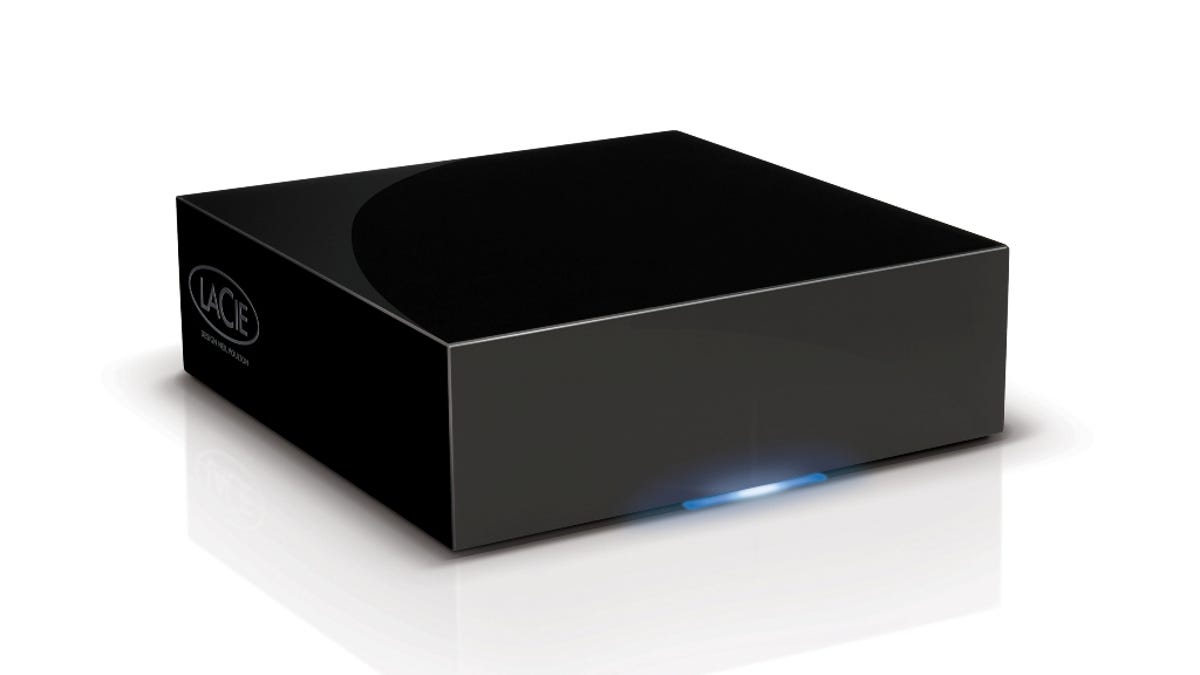LaCie CloudBox: Down-to-earth cloud storage, for a price
LaCie introduces a new 100GB cloud storage solution that comes with a local network storage drive.
Online storage, recently and aptly called "cloud storage," is not new. Most, if not all, of the services share the same hurdle: the Internet connection. This means that if you use the computer to upload the backup files, a process that could take days depending on the amount of data to be uploaded, you'd have to let the computer run for a long time, not ideal for those wanting to conserve energy.
For this reason, LaCie, a storage vendor that's known for making stylish devices, introduced today a new cloud-based backup solution called the CloudBox. This is the first hybrid LAN/cloud-based storage service since the company acquired online backup service Wuala more than two years ago.
Essentially, this is a small NAS server that you connect to your existing network. Included software will then automatically back up important files of your choice from your computer to the device. As this is done locally, it takes much less time than when you upload it directly to the Internet. The CloudBox then will upload its content to LaCie's online storage service, by itself. This allows users to operate the computer like normal while still having a online backup solution.
LaCie is aware that it takes a long time to upload a large amount of data via the Internet; it optimizes the CloudBox for those who want to back up important information and limits its storage to just 100GB. Still, this is quite a large amount. To put it in perspective, if you have a full T1 upload connection (1.5Mbps), which most of us don't, it'd take about a week to finish uploading the entire 100GB of data. And that's if the connection is used only for the uploading job. In real-world usage, the actual time for the upload with this connection speed would be somewhere between 30 to 60 days.
However, the company expects that most users would have much less than 100GB of really important information, such as documents or photos, that can't be replaced. And for this group of users, the CloudBox offers a set-it-and-forget-it type of online backup solution.
Once the data has already been backed up to LaCie's cloud, it can then be accessed via the Internet from any computer, making recovery a convenient process. Data backed up on the cloud is also kept in separate versions, up to 10, meaning you can go back to the old version of, for example, a Word file in case you've made a mistake and deleted a large chunk of important text within it.
LaCie says that the CloudBox offers multiple levels of data security, including two copies of your files, one on the CloudBox locally and one online, with 128-bit AES data encryption. The company says that files are encrypted before they are sent to the cloud, meaning nobody else but the user will have access to it.
This somewhat novel cloud service seems friendly enough, but its pricing is out of this world. The CloudBox is slated to cost $200; that includes a 100GB local network storage space and a one-year online subscription. After that, it's a yearly cost of $100 for the online portion of the service.
Considering that you can get external hard drives and NAS servers that offer terabytes of storage space for less than $200 with no yearly subscription, the CloudBox seems far too expensive to be a viable backup solution.
Obviously, we'll have to wait and see how the CloudBox pans out, but judging from its pricing, most of us will be better off e-mailing important documents to ourselves or better yet investing in a full-featured NAS server that offers integration with existing online backup services, such as features found in Synology NAS servers and Amazon S3.


